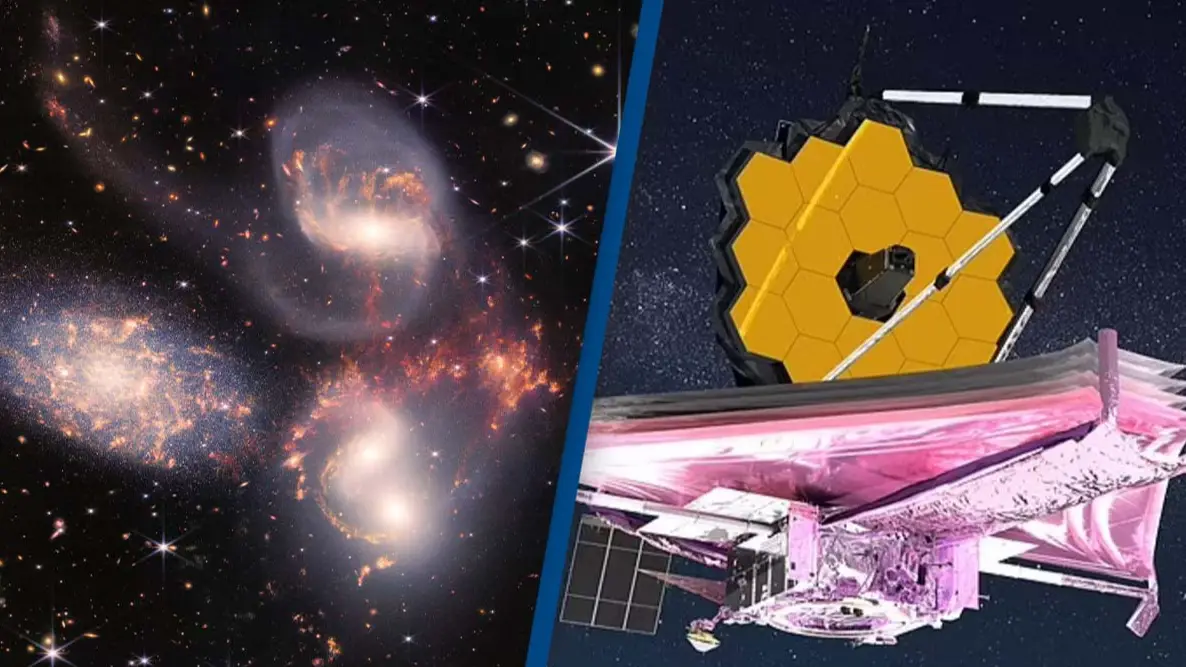
NASA has just discovered six giant galaxies that are so ancient, researchers have said that they shouldn't even exist anymore.
A team of astrophysicists found the mysterious objects hiding in images taken from the James Webb Space Telescope, which was published in a study today (22 February).
They've also revealed that this finding is 'pushing the limits' to everything we thought we knew about space.
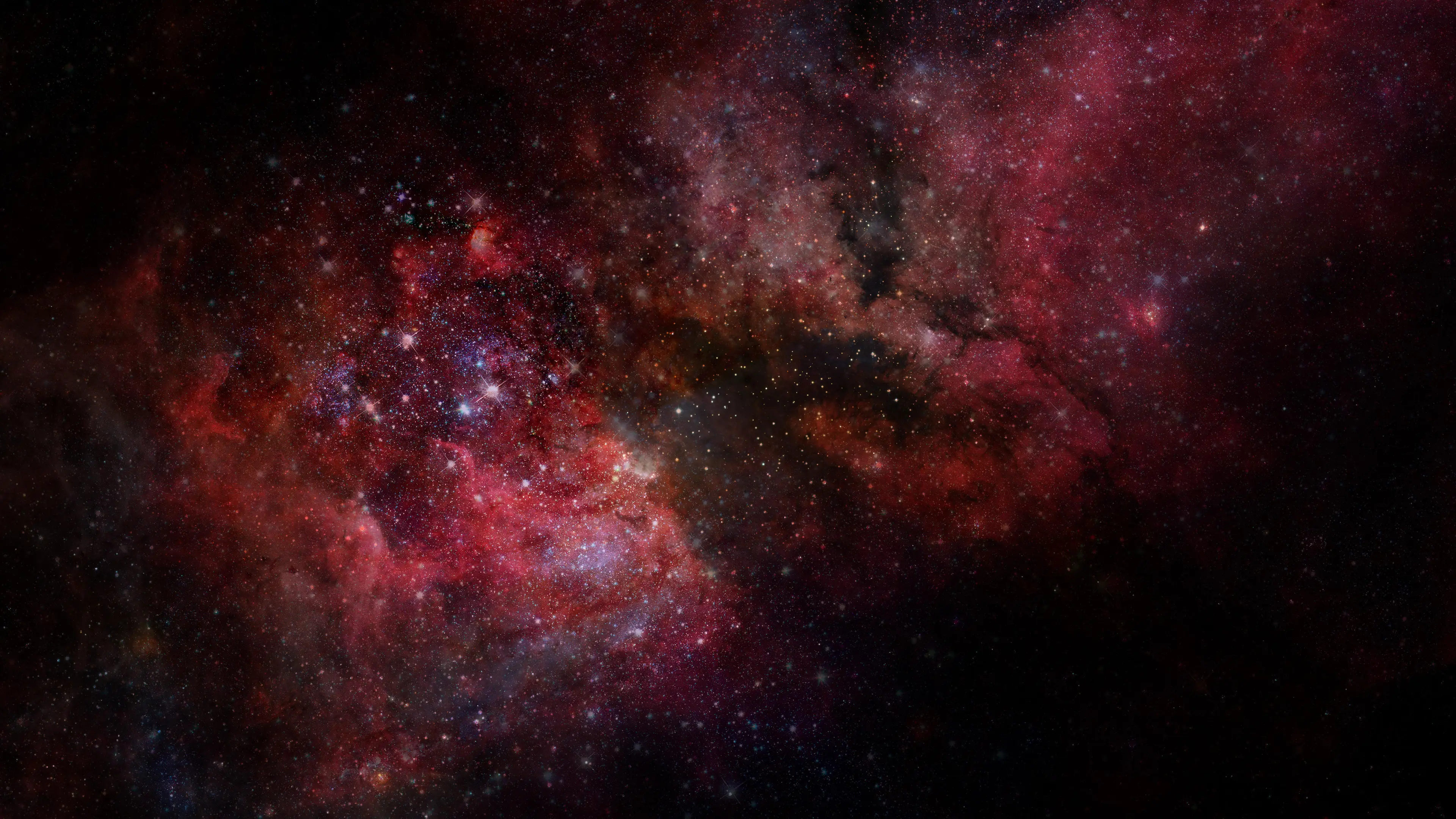
Advert
NASA was able to find galaxies nearly as huge as the Milky Way, all full of some very mature red stars, a recent study has found.
The images were obtained by the James Webb Space Telescope, which showed exactly just how far away these stars were.
While only appearing as miniscule dots to the powerful telescope, astronomers have now been able to establish the age of the stars through analysing the light emitting from the galaxies.
Nearly as old as time itself, researchers found that the giant galaxies seemingly appeared shortly after the dawn of the universe.
Roughly 500 to 700 million years after the Big Bang - to be exact - when the universe was just 3 percent of its current age.
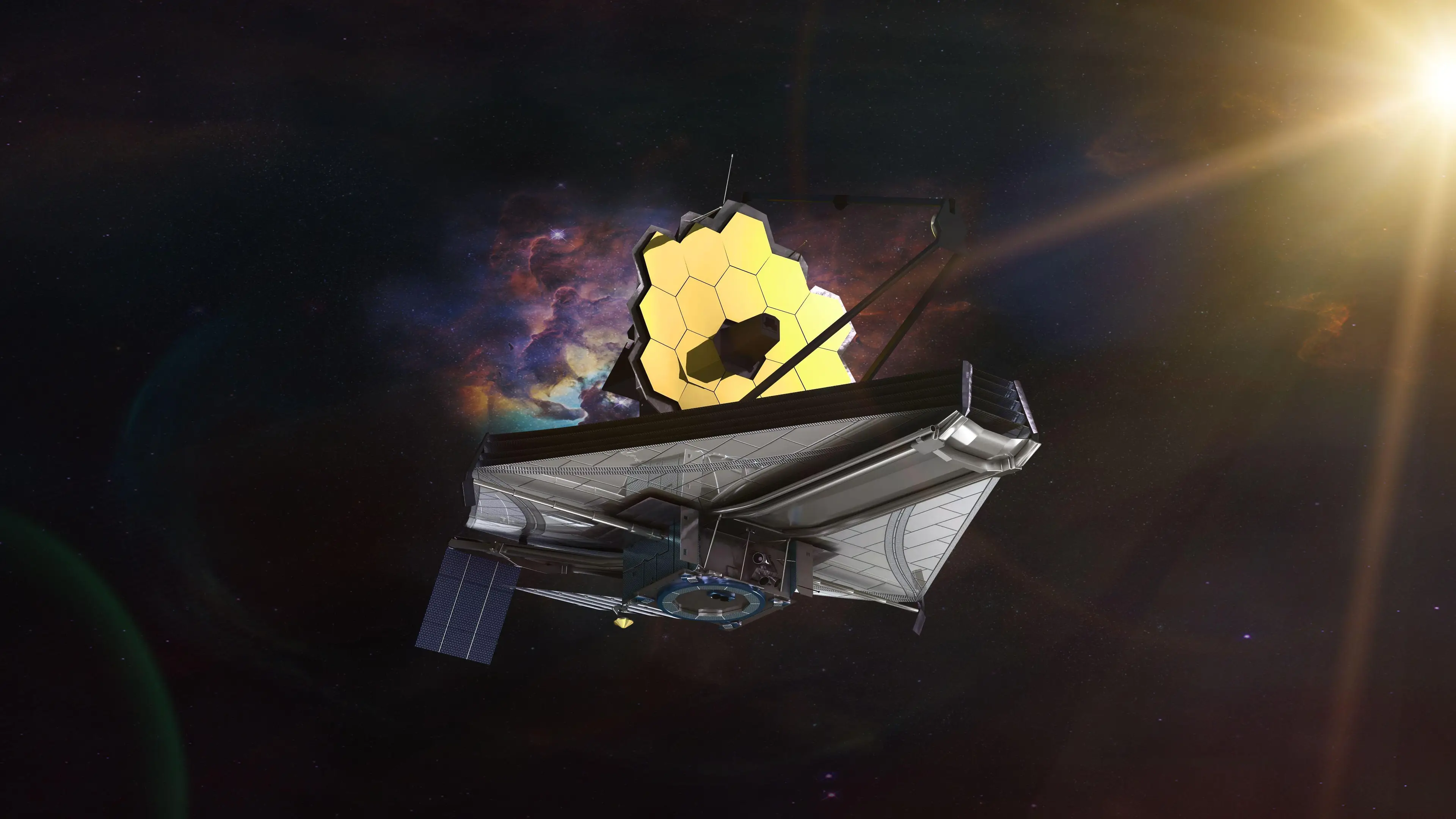
"These objects are way more massive than anyone expected," said Joel Leja, an assistant professor of astronomy and astrophysics at Penn State.
He continued: "We expected only to find tiny, young, baby galaxies at this point in time, but we've discovered galaxies as mature as our own in what was previously understood to be the dawn of the universe."
Researchers also claimed that the discovery 'pushes the limits of our understanding of cosmology' and these objects are now being informally referred to as 'universe breakers'.
"They have been living up to their name so far," Leja added.
While he revealed that they had 'no idea what we were going to find', the 'unexpected' has since created issues in the field.
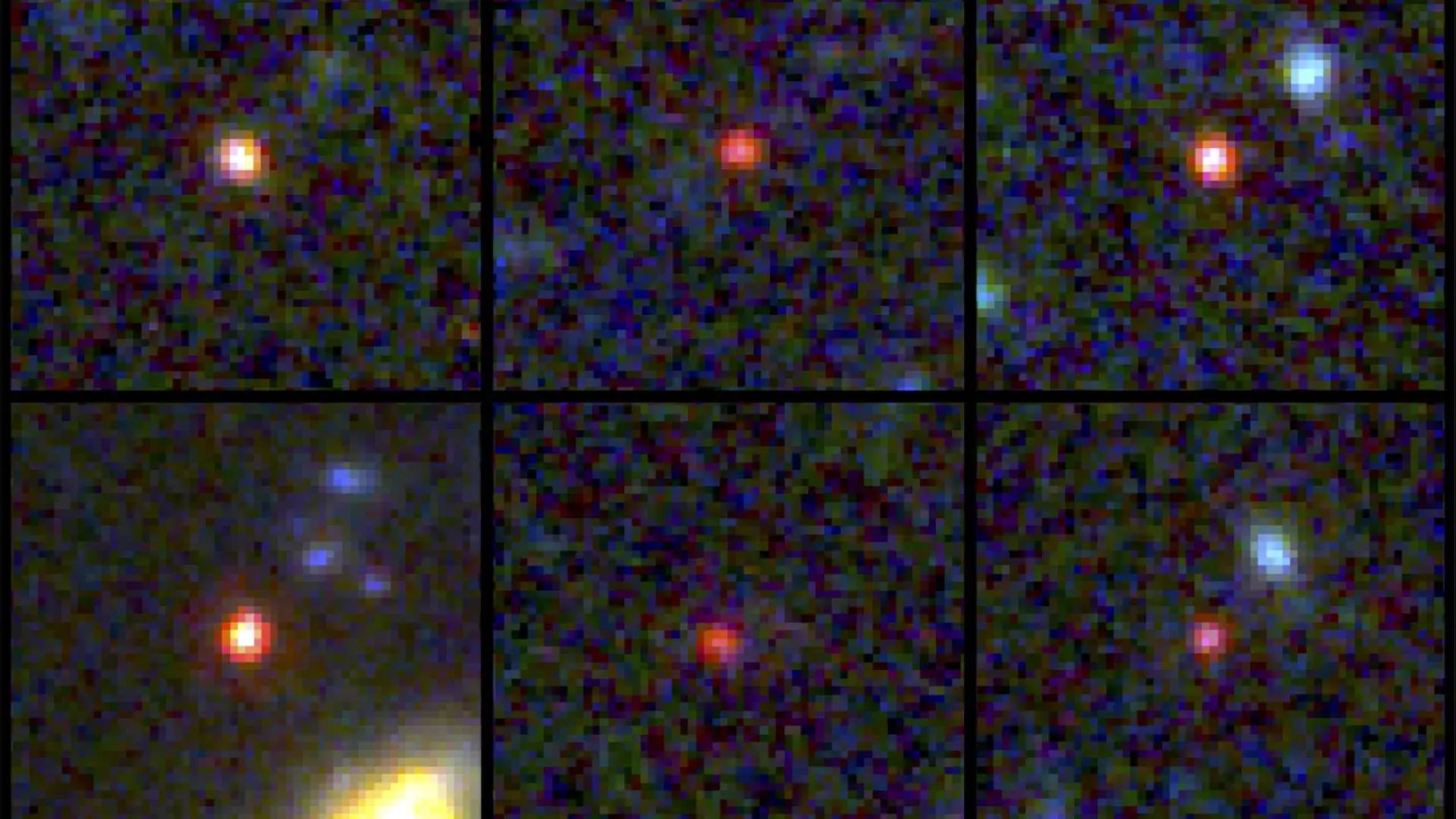
He continued: "It turns out we found something so unexpected it actually creates problems for science. It calls the whole picture of early galaxy formation into question."
The assistant professor also added that this was their 'first glimpse' back this far in time, so researchers were keen to keep an 'open mind' about what they were seeing before them.
"While the data indicates they are likely galaxies," he said, "I think there is a real possibility that a few of these objects turn out to be obscured supermassive black holes."
However, he added: "Regardless, the amount of mass we discovered means that the known mass in stars at this period of our universe is up to 100 times greater than we had previously thought."
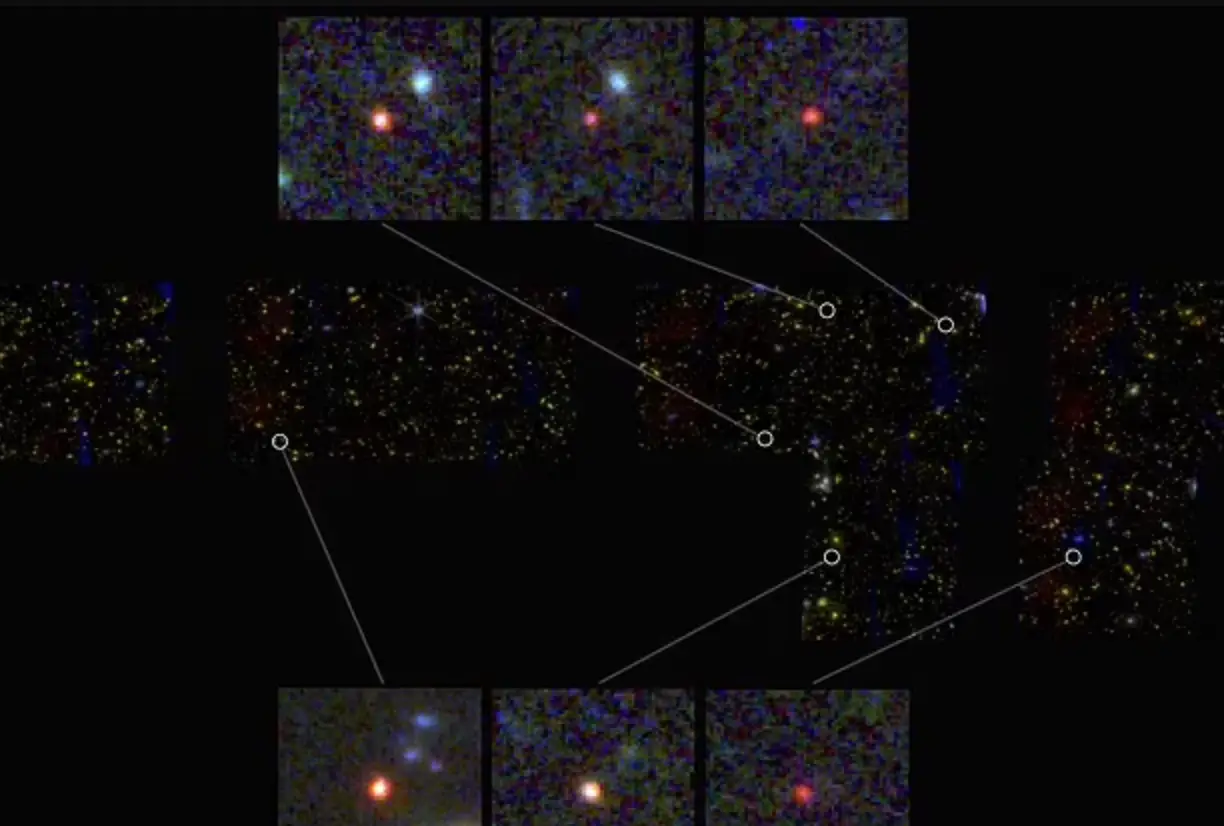
Leja recalled that when they first happened upon the data, researchers just began 'diving in' and the 'massive things' before them seemingly 'popped out'.
"We started doing the modelling and tried to figure out what they were, because they were so big and bright.
"We've found something we never thought to ask the universe — and it happened way faster than I thought, but here we are," he concluded.
Erica Nelson, co-author of the new research and assistant professor of astrophysics at the University of Colorado Boulder, called it 'bananas'.
"You just don’t expect the early universe to be able to organise itself that quickly. These galaxies should not have had time to form."
Topics: NASA, News, Space, World News